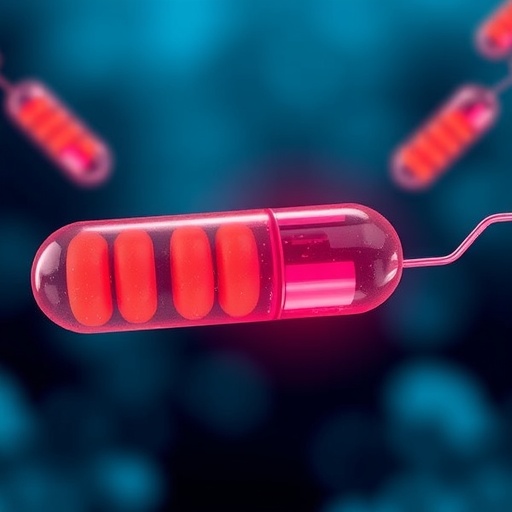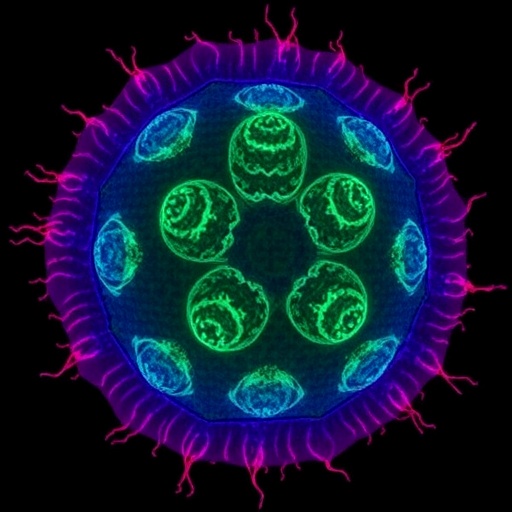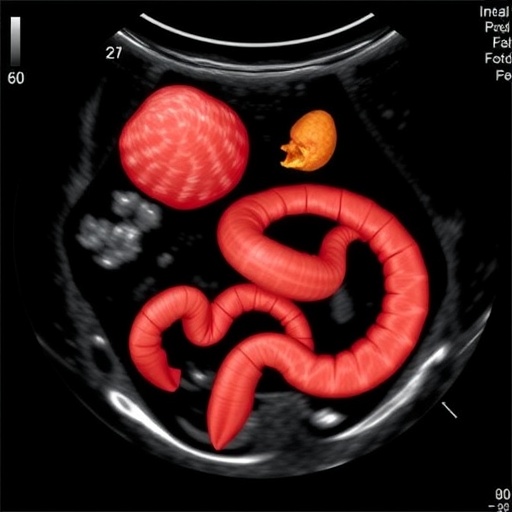PROTECT YOUR DNA WITH QUANTUM TECHNOLOGY
Orgo-Life the new way to the future Advertising by AdpathwayIn the rapidly evolving landscape of cancer immunotherapy, checkpoint inhibitors have revolutionized treatment paradigms by harnessing the body’s own immune system to combat malignancies. Among these, antibodies targeting CTLA-4 (cytotoxic T-lymphocyte-associated protein 4) have shown remarkable therapeutic potential. However, the clinical application of anti-CTLA-4 antibodies remains severely limited by their dose-dependent immune-related toxicities. This dilemma has sparked an urgent pursuit for innovative approaches that can uncouple efficacy from toxicity. In a groundbreaking study recently published in Nature Communications, Cao and colleagues unveil a next-generation anti-CTLA-4 probody that promises to calibrate this delicate balance, enhancing anti-tumor immunity while mitigating systemic adverse effects in murine models.
The ingenuity of this new probody lies in its conditional activation strategy. Unlike conventional antibodies that circulate in their fully active forms, this anti-CTLA-4 probody remains masked and inert in circulation, only unveiling its therapeutic potential within the tumor microenvironment. This specificity is achieved through a cleverly designed masking peptide that is cleaved by tumor-associated proteases—enzymes abundantly expressed in the malignant milieu but scarce in healthy tissues. As a result, the probody’s CTLA-4 binding domains are revealed precisely where they are needed most, dramatically reducing off-target immune activation and the subsequent systemic toxicities that plague existing treatments.
Cao et al. employed rigorous biochemical and cellular analyses to validate the masking and protease-activatable features of their probody construct. They demonstrated that the masked antibody exhibited negligible binding to CTLA-4 under normal physiological conditions, thereby minimizing unintended immune checkpoint blockade outside tumors. Upon exposure to relevant proteolytic enzymes mimicking the tumor environment, rapid unmasking occurred, restoring the antibody’s full affinity and functional ability to engage CTLA-4 on T cells. This elegant engineering illustrates a paradigm shift, leveraging tumor biology’s unique enzymatic landscape as a molecular switch to control antibody activation in real time.
Translational relevance was further underscored through extensive in vivo evaluation using murine tumor models. The next-generation probody significantly suppressed tumor growth, showcasing potent anti-tumor immunity comparable to or exceeding that of conventional anti-CTLA-4 antibodies. Crucially, mice treated with the probody displayed a markedly improved safety profile, with substantially reduced signs of immune-related adverse events such as colitis and dermatitis, frequent complications in checkpoint blockade therapy. These findings make a compelling case for how spatial control over biologic activity can reconcile efficacy and safety, phenomena often antagonistic in immuno-oncology.
Further immunophenotyping revealed that the probody preferentially enhanced cytotoxic T-cell infiltration within tumors along with a reduction in regulatory T cells, which are known to dampen immune responses. This shift in the tumor immune microenvironment potentiates durable anti-tumor responses and might reduce the risk of tumor relapse. Importantly, the systemic immune compartments of treated mice remained largely unaffected, supporting the hypothesis that local tumor-restricted activation is key to achieving focused immunomodulation without igniting widespread autoimmunity.
The biochemical design hinged on several innovative features, including the probody’s bespoke linker sequences optimized for protease specificity. The team identified and incorporated cleavage sites selectively targeted by proteases such as matrix metalloproteinases, which are often upregulated in solid tumors. This precision tailoring allows for versatile adaptability across various tumor types, each characterized by distinct protease expression profiles. It also opens intriguing possibilities for personalizing immunotherapy based on the enzymatic landscape of individual patient tumors.
From a mechanistic standpoint, CTLA-4 engagement inhibits T-cell activation by competing with the co-stimulatory receptor CD28 for binding to B7 molecules. Blocking CTLA-4 thus unleashes a potent T-cell response capable of eradicating malignant cells, but systemic blockade simultaneously disinhibits autoreactive T cells, leading to immune-mediated tissue damage. The probody’s selective activation bypasses this systemic disinhibition, offering an elegant molecular solution to a problem that has long hampered the therapeutic index of anti-CTLA-4 antibodies.
This next-generation probody platform adds to the burgeoning toolkit aimed at improving checkpoint inhibitor therapies and could synergize well with other immunomodulatory agents such as anti-PD-1/PD-L1 antibodies. Its tumor-restricted activation not only reduces potential dose-limiting toxicities but may also permit higher dosing or more frequent administration, thereby enhancing therapeutic efficacy. This strategy heralds a new era of precision immunotherapy, where the spatial and temporal dynamics of drug action are finely tuned to maximize patient benefit.
Clinical translation of this technology is poised to impact treatment paradigms for a range of solid tumors, particularly those malignancies currently underserved by existing immune checkpoint inhibitors due to unacceptable toxicities. Moreover, the probody’s modular design suggests that the approach could be generalized to other checkpoint targets or even non-oncological diseases where tissue-selective modulation of immune responses is desired. The concept of protease-activatable biologics may redefine the future of targeted therapy by transforming potent molecules that were once deemed too toxic into safe and effective drugs.
Future investigations will need to explore the pharmacokinetics, immunogenicity, and long-term safety of these probodies in human subjects. Understanding the heterogeneity of tumor protease expression and how it correlates with probody activation kinetics will be crucial for patient stratification. Comprehensive biomarker studies may identify which patient populations stand to benefit most from this tailored therapeutic strategy. Additionally, rational combination regimens with other immunotherapies or conventional treatments could be investigated to further amplify anti-tumor immune responses.
The comprehensive dataset provided by Cao and colleagues combined structural biology insights, in vitro assays, and robust in vivo models, laying a solid foundation for clinical development. Their pioneering work illustrates the power of integrating molecular engineering with tumor biology to overcome longstanding barriers in immunotherapy. This breakthrough exemplifies how smart drug design can unlock the potential of powerful immune modulators while circumventing their liabilities, ultimately translating into better outcomes for cancer patients worldwide.
In summary, the anti-CTLA-4 probody represents a significant leap forward in immuno-oncology by achieving tumor-specific immune checkpoint blockade with mitigated systemic toxicity. This innovation highlights the promise of protease-activatable therapeutics and may set a new standard for immune checkpoint inhibitor design. As the oncology community strives to increase treatment efficacy while safeguarding patient safety, such next-generation biologics offer a beacon of hope, illuminating pathways to more precise, potent, and personalized cancer therapies.
The road ahead involves not only clinical validation but also scaling manufacturing processes for these complex biologics and ensuring accessibility across diverse healthcare settings. The ability to harness the tumor microenvironment’s unique enzymology to control drug activation heralds an era of sophisticated immunotherapies, tailored to individual tumor landscapes. This probody technology could well revolutionize how antibody therapies are conceptualized, designed, and deployed across various diseases, marking a milestone in precision medicine that resonates far beyond oncology.
As immune checkpoint inhibitors continue to reshape cancer treatment, the emergence of such next-generation approaches attests to the dynamic synergy between basic science, translational research, and clinical innovation. Cao et al.’s insightful work not only solves a critical therapeutic challenge but also inspires the broader biomedical community to rethink how we deliver potent immunomodulators safely. The eventual impact on patient care may be transformative, reducing morbidity without compromising the life-saving benefits of immunotherapy.
With ongoing advancements and clinical trials on the horizon, the future looks promising for patients and clinicians eager for safer, more effective cancer therapies. The unveiling of the anti-CTLA-4 probody underscores the boundless potential of biotechnology to refine immune interventions, turning the tide against cancer with ever-greater precision and minimal collateral damage. This seminal development paves the way for a new frontier in cancer immunotherapy, where power is harnessed with finesse, toxicity is tamed, and durable patient outcomes are within reach.
Subject of Research: Development of a next-generation anti-CTLA-4 probody designed to enhance anti-tumor immunity while reducing systemic toxicities in cancer immunotherapy.
Article Title: A next-generation anti-CTLA-4 probody mitigates toxicity and enhances anti-tumor immunity in mice.
Article References:
Cao, W., Chen, J., Fu, Y. et al. A next-generation anti-CTLA-4 probody mitigates toxicity and enhances anti-tumor immunity in mice. Nat Commun 16, 9029 (2025). https://doi.org/10.1038/s41467-025-64081-y
Image Credits: AI Generated
Tags: cancer immunotherapy advancementscheckpoint inhibitors in oncologyconditional activation therapyimmune-related toxicitiesinnovative cancer treatmentsnext-generation anti-CTLA-4probody technology in immunotherapyreducing systemic adverse effectstargeted cancer therapy strategiestherapeutic antibody developmenttumor immunity enhancementtumor microenvironment specificity


 4 hours ago
5
4 hours ago
5





















 English (US) ·
English (US) ·  French (CA) ·
French (CA) ·